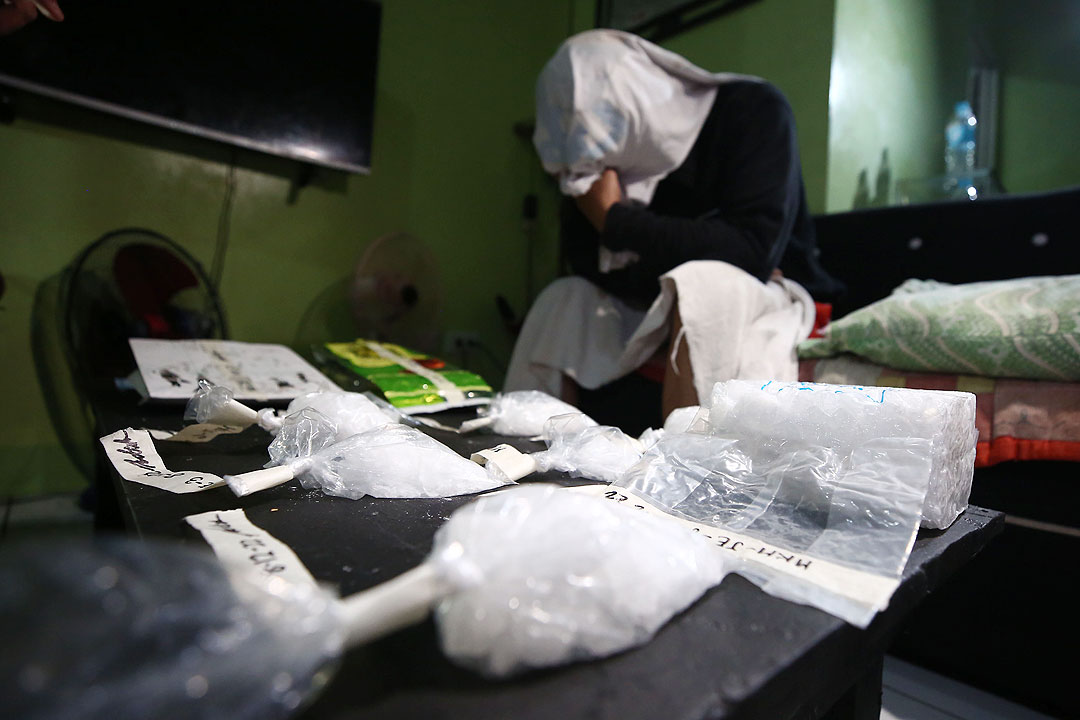Philippine gov’t accused of belittling abuses in drug war

By John Victor D. Ordoñez, Reporter
HUMAN rights groups on Wednesday accused the government of President Ferdinand R. Marcos, Jr. of downplaying human rights abuses during his predecessor’s deadly war on drugs after it sought to stop the International Criminal Court (ICC) to stop its investigation.
“It is hypocritical how the government brushes off the numbers of persons arrested and killed before the court, while it continues to proudly and blatantly flaunt these as accomplishment indicators of the ‘war on drugs,’” Rise Up for Life and for Rights and the National Union of Peoples’ Lawyers said in a joint statement.
“It is ridiculous how the government ignores the fact that the victims themselves have requested the ICC to step in.”
But Solicitor General Menardo I. Guevarra said the state is fully aware of the abuses committed by law enforcers during the anti-illegal drug campaign.
“Our domestic investigative and prosecutorial system is at work and we have our own procedures to follow,” he told BusinessWorld in a Viber message.
“The ICC cannot impose its own standards of investigation upon a sovereign nation, over whom the ICC can no longer exercise its jurisdiction,” said Mr. Guevarra, who was ex-President Rodrigo R. Duterte’s Justice chief.
In a 51-page plea dated March 13, the Office of the Solicitor General said the ICC prosecutor was not authorized to resume the probe and that the court did not have jurisdiction over the Philippines.
“The ICC prosecution’s activities in furtherance of its investigations would lack any legal foundation and encroach on the sovereignty of the Republic of the Philippines,” state lawyers including Mr. Guevarra told the Hague-based tribunal.
They said the ICC Pre-Trial Chamber had made a mistake when it assumed jurisdiction over the Philippines, noting that the country had withdrawn its membership from the court in 2018.
The human rights groups welcomed the conviction of a police officer for the deaths of two teenagers in 2017, but said it showed how the Philippine justice system was prone to delays.
They said public outrage and protests had compelled the government to prosecute the cops.
“This conviction does not, in any way, detract us from our assertion that the justice system in the Philippines is inhospitable to human rights prosecution.”
TOO LATE
A Navotas trial court convicted the police officer for the murder of the two teens. The same cop was convicted in November by a Caloocan trial court for torture and planting of evidence in the killing of 19-year-old Carl Angelo M. Arnaiz and 14-year-old Reynaldo D. De Guzman.
Fides M. Lim, convenor of human rights group Kapatid, said the conviction came five years too late.
“Their grisly murder is but the result of the presidential license to commit wrongdoing in the name of a failed drug war,” she said in a Viber message. “The ICC must still come into the picture to ensure justice and accountability for every victim of this pointless drug war.”
The tribunal’s pre-trial chamber in January reopened its investigation into killings and so-called crimes against humanity under Mr. Duterte’s anti-illegal drug campaign. The court said it was not satisfied with Philippine efforts to probe the human rights abuses.
ICC prosecutor Ahmad A. Khan on Feb. 16 told the international court the Philippines had not raised new arguments to justify halting the probe.
President Ferdinand R. Marcos, Jr. has said the international tribunal did not have jurisdiction over the country, saying the local courts could punish rogue officials. He said the Philippines would not rejoin the ICC.
European Union lawmakers who came to the Philippines last month urged the Philippine government to rejoin the ICC to show its commitment to human rights.
Philippine police arrested 8,183 drug suspects in 6,044 illegal drug operations from the start of the year to Feb. 11, national police chief General Rodolfo S. Azurin, Jr. said on Feb. 13.
Human rights abuses continued under the first six months of the Marcos government, Human Rights Watch said in a report on Jan. 12.
The Philippine government estimates that at least 6,117 suspected drug dealers had been killed in police operations. Human rights groups say as many as 30,000 suspects died.
“Lamentably, the government until now lacks the integrity, humility, self-awareness and empathy to recognize the irreparable pain and loss suffered by the victims,” NUPL and Rise Up for Life and for Rights said.
The government early this month asked the ICC to reject separate pleas by the families of drug war victims and the ICC’s Office of Public Counsel for Victims (OPCV) to testify in court.
The public counsel’s motion and the anonymous request from the victims “fall foul however of procedural and substantive requirements, which are necessary in these proceedings before the Appeals Chamber,” state lawyers said in an eight-page pleading dated March 2.
The government said the ICC office did not have a role in the collection of views and concerns of victims of the government’s anti-illegal drug campaign.
“The OPCV does not aver that it has been in contact with any victim in relation to the situation in the Republic of the Philippines and it fails to establish which specific victims the OPCV seeks to advance the views of,” they said.
The move came after 90 anonymous relatives of drug war victims objected to a state appeal to halt the ICC’s probe of the drug war.
The Philippines will not tolerate “external interference” by the ICC because it does not have the power to probe the country’s anti-illegal drug campaign, Justice Secretary Jesus Crispin C. Remulla told the United Nations Human Rights Council on March 1.
The tribunal, which tries people charged with crimes against humanity, genocide, war crimes and aggression, suspended its probe of Mr. Duterte’s deadly war on drugs in 2021 upon the Philippine government’s request.
It was also set to probe vigilante-style killings in Davao City when Mr. Duterte was still its vice mayor and mayor.



